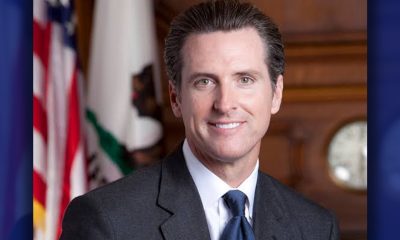Business
It’s Official: H-E-B MacGregor Market Breaks Ground
HOUSTON FORWARD TIMES — Council Member Boykins took a major step forward to addressing food deserts in the Third Ward.
By Jeffery L. Boney
When Council Member Dwight Boykins was sworn in to the Houston City Council in 2014 to represent District D, one of his primary goals was to help eradicate food deserts across the district, particularly in areas that were underserved like Houston’s Third Ward community.
After a five-year journey of hard and relentless work, and through the formation of a unique public-private sector partnership with H-E-B, this past Saturday, February 9, Council Member Boykins took a major step forward to addressing food deserts in the Third Ward, as they officially broke ground on a brand new grocery store in an area that has long suffered from limited access to healthy and affordable food options.
The new H-E-B MacGregor Market will be located at the intersection of N. MacGregor Way and State Highway 288. The new 90,000 sq. ft. store will feature expansive shopping options and added services for convenience, quality selection and unsurpassed freshness.
Council Member Boykins was joined by Mayor Sylvester Turner, H-E-B Houston President Scott McClelland, other H-E-B executives, the new MacGregor Market H-E-B leadership and other city leaders to help celebrate this momentous groundbreaking occasion, marking a milestone in District D.
“I am so excited to be able to bring a quality, upscale grocery store to our community,” said Boykins. “Shortly after I was sworn into office, I contacted and asked several retailers to take a tour of our District and the only retailer that responded was H-E-B. I shared that this store could become a sustainable solution for our community and catalyst for economic development, as well as a nationally recognized best practice for public-private partnerships. Clearly, H-E-B got it. The H-E-B MacGregor Market belongs to all of us and should be a hallmark in this city for many years to come.”
Boykins tells the Forward Times that this is the only public/private partnership store in H-E-B’s inventory and that it will create 400 jobs and bring a diversity of products to the area.
“Thanks to the work of officials with H-E-B, the administration of former Mayor Annise Parker, Mayor Sylvester Turner and his team, Houston Community College, the Houston Department of Housing and Community Development, the Houston Housing Finance Corporation, Ms. Licia Green with Waterman Steele, past and current members of my staff, community stakeholders and so many countless others, we are finally crossing the finish line,” said Boykins. “Our community overwhelmingly supported the concept of bringing a grocery store to this site.”
The leadership of H-E-B states that they have been committed to providing a larger store for the Third Ward community for some time.
“This parcel of land affords H-E-B the space needed to build a new, replacement store for our neighbors with expanded offerings and a state-of-the-art design,” said Winell Herron, H-E-B’s Group VP for Public Affairs, Diversity and Environmental Affairs. “We have thoughtfully designed a store the community will be proud of when we open at the end of this year. We respect this community’s deep culture and commitment to maintaining its residential character while supporting a revitalization of local business. We are confident this store will add to the vibrant commerce in this historic area.”
According to H-E-B leadership, H-E-B MacGregor Market shoppers will enjoy their traditional selections of local favorites, as well as fresh Produce, Dairy, H-E-B Organics, full-service scratch Bakery Department with artisan breads and self-serve pastry items, an expansive Deli featuring in-house roasted meats, full-service Seafood Department, Wine Department with a variety of local, national and international labels to choose from, Healthy Living, a Floral Department offering online ordering, a full-service Meat Market, a full line of Meal Simple items, an in-house Pharmacy with dedicated pick-up and drop-off counters as well as a drive-thru window, and one of H-E-B’s newest features – a dedicated Curbside pick-up area.
Boykins states that he is confident this store will serve as the catalyst for more economic development and revitalization in the Third Ward area, and will be heralded as a national model for public/private partnerships. The store will take nine months to construct and will replace the neighborhood’s current H-E-B on Old Spanish Trail and Scott Street.
Construction on the H-E-B MacGregor Market will begin soon with a completion date scheduled for late 2019 and will replace the current H-E-B in Third Ward, located on Old Spanish Trail and Scott Street. H-E-B leadership states that the new store will be the first of its kind and it is expected to be three times the size of the Old Spanish Trail location. The Old Spanish Trail location will close a day prior to the new store opening, according to H-E-B.
This article originally appeared in the Houston Forward Times.
Activism
Oakland’s Black Chamber of Commerce Awards 63 Businesses $1,000 Micro Grants
“Our members are essential to Oakland’s economic and cultural fabric,” said Cathy Adams, president of the OAACC. “These grants are a testament to our dedication to fostering business growth and sustainability within our community.” The microgrants are designed to provide vital support for members to strengthen their operations, invest in growth opportunities, or meet pressing needs, Adams added.

By Oakland Post Staff
Last week, the Oakland African American Chamber of Commerce (OAACC) announced the distribution of $63,000 in microgrants to 63 member businesses. These $1,000 grants, generously sponsored by Supervisor Nate Miley, Amazon, and the Tides Foundation, reflect the organization’s goals and unwavering commitment to empowering Black-owned businesses in Oakland.
“Our members are essential to Oakland’s economic and cultural fabric,” said Cathy Adams, president of the OAACC. “These grants are a testament to our dedication to fostering business growth and sustainability within our community.”
The microgrants are designed to provide vital support for members to strengthen their operations, invest in growth opportunities, or meet pressing needs, Adams added.
As part of this initiative, OAACC leaders are encouraging all grant recipients to inspire their communities to support Oakland-based businesses by shopping locally, sharing referrals, and following their social media pages.
For more information about the OAACC and the organization’s initiatives, please visit www.oaacc.org.
Activism
Port of Oakland to Host January Meeting for Interfaith Council of Alameda County
State, county, and city officials have been invited to join ICAC board members and the community to explore effective strategies for addressing these interconnected challenges across Alameda County, including ICAC’s Safe Car Park program expansion and efforts to convert trailers into shelter for the unhoused.

Special to The Post
The Interfaith Council of Alameda County (ICAC) will hold its first meeting of 2025 on Thursday, Jan. 9, at the Port of Oakland, located at 530 Water St. Hosted by the president of the Port of Oakland, the meeting will run from 1-2:30 p.m. and will focus on pressing community issues including environmental justice, housing solutions, and crime and safety.
State, county, and city officials have been invited to join ICAC board members and the community to explore effective strategies for addressing these interconnected challenges across Alameda County, including ICAC’s Safe Car Park program expansion and efforts to convert trailers into shelter for the unhoused.
All are welcome and encouraged to attend and contribute to this important discussion. For more information, visit interfaithAC.org.
Arts and Culture
Book Review: Building the Worlds That Kill Us: Disease, Death, and Inequality in American History
Nearly five years ago, while interviewing residents along the Mississippi River in Louisiana for a book they were writing, authors Rosner and Markowitz learned that they’d caused a little brouhaha. Large corporations in the area, ones that the residents of “a small, largely African American community” had battled over air and soil contamination and illness, didn’t want any more “’agitators’” poking around. They’d asked a state trooper to see if the authors were going to cause trouble.

By Terri Schlichenmeyer
Author: David Rosner and Gerald Markowitz, c.2024, Columbia University Press, $28.00
Get lots of rest.
That’s always good advice when you’re ailing. Don’t overdo. Don’t try to be Superman or Supermom, just rest and follow your doctor’s orders.
And if, as in the new book, “Building the Worlds That Kill Us” by David Rosner and Gerald Markowitz, the color of your skin and your social strata are a certain way, you’ll feel better soon.
Nearly five years ago, while interviewing residents along the Mississippi River in Louisiana for a book they were writing, authors Rosner and Markowitz learned that they’d caused a little brouhaha. Large corporations in the area, ones that the residents of “a small, largely African American community” had battled over air and soil contamination and illness, didn’t want any more “’agitators’” poking around. They’d asked a state trooper to see if the authors were going to cause trouble.
For Rosner and Markowitz, this underscored “what every thoughtful person at least suspects”: that age, geography, immigrant status, “income, wealth, race, gender, sexuality, and social position” largely impacts the quality and availability of medical care.
It’s been this way since Europeans first arrived on North American shores.
Native Americans “had their share of illness and disease” even before the Europeans arrived and brought diseases that decimated established populations. There was little-to-no medicine offered to slaves on the Middle Passage because a ship owner’s “financial calculus… included the price of disease and death.” According to the authors, many enslavers weren’t even “convinced” that the cost of feeding their slaves was worth the work received.
Factory workers in the late 1800s and early 1900s worked long weeks and long days under sometimes dangerous conditions, and health care was meager; Depression-era workers didn’t fare much better. Black Americans were used for medical experimentation. And just three years ago, the American Lung Association reported that “’people of color’ disproportionately” lived in areas where the air quality was particularly dangerous.
So, what does all this mean? Authors David Rosner and Gerald Markowitz don’t seem to be too optimistic, for one thing, but in “Building the Worlds That Kill Us,” they do leave readers with a thought-provoker: “we as a nation … created this dark moment and we have the ability to change it.” Finding the “how” in this book, however, will take serious between-the-lines reading.
If that sounds ominous, it is. Most of this book is, in fact, quite dismaying, despite that there are glimpses of pushback here and there, in the form of protests and strikes throughout many decades. You may notice, if this is a subject you’re passionate about, that the histories may be familiar but deeper than you might’ve learned in high school. You’ll also notice the relevance to today’s healthcare issues and questions, and that’s likewise disturbing.
This is by no means a happy-happy vacation book, but it is essential reading if you care about national health issues, worker safety, public attitudes, and government involvement in medical care inequality. You may know some of what’s inside “Building the Worlds That Kill Us,” but now you can learn the rest.
-

 Activism3 weeks ago
Activism3 weeks agoBooks for Ghana
-

 Arts and Culture3 weeks ago
Arts and Culture3 weeks agoPromise Marks Performs Songs of Etta James in One-Woman Show, “A Sunday Kind of Love” at the Black Repertory Theater in Berkeley
-

 Bay Area3 weeks ago
Bay Area3 weeks agoGlydways Breaking Ground on 14-Acre Demonstration Facility at Hilltop Mall
-

 Activism3 weeks ago
Activism3 weeks ago‘Donald Trump Is Not a God:’ Rep. Bennie Thompson Blasts Trump’s Call to Jail Him
-

 Activism3 weeks ago
Activism3 weeks agoLiving His Legacy: The Late Oscar Wright’s “Village” Vows to Inherit Activist’s Commitment to Education
-

 Alameda County3 weeks ago
Alameda County3 weeks agoAC Transit Holiday Bus Offering Free Rides Since 1963
-

 Activism4 weeks ago
Activism4 weeks agoOakland Post: Week of December 11 – 17, 2024
-

 #NNPA BlackPress4 weeks ago
#NNPA BlackPress4 weeks agoCalifornia, Districts Try to Recruit and Retain Black Teachers; Advocates Say More Should Be Done




















































